Hands Down the Best Way to Kill Weeds and It’s Not Roundup
If you think a homemade weed killer could not possibly be effective, even potent, against weeds, think again! But first, a story …
In 1970, John Franz, a chemist for Monsanto, discovered that glyphosate is a potent herbicide that kills almost every plant material imaginable. In no time, the company gave its miracle weed killer the brand name Roundup.
Farmers, especially, went wild for Roundup. Just one problem: It was nearly impossible to kill the weeds without also killing their crops. So Monsanto sent its chemists back to work to develop glyphosate-resistant, or “Roundup ready crops” that have had their DNA altered (genetically modified or GMO) to allow them to be immune to glyphosate. Now farmers could spray with abandon and not worry about their crops.
To say that glyphosate, Roundup, and GMO foods have become a bit controversial would be, to put it mildly. There are some who say that glyphosate causes cancer in animals, and most likely humans, too. They insist that the side effects of long-term GMO food consumption are producing serious health risks for all living things. Despite all of this controversy and outcry about issues surrounding Roundup and GMO crops, so far the Environmental Protection Agency (EPA) has not forced Roundup off the market. It’s a hot-button issue, that’s for sure.
There is one provable and very compelling reason not to buy Roundup: It’s too expensive! Even if it were proven beyond a shadow of a doubt that Roundup is safe as water, I still wouldn’t shell out the high price for the stuff. I kill weeds like crazy with kitchen pantry items that are really cheap and non-toxic: white vinegar, ordinary table salt, and dishwashing liquid.
First, I will give you the ingredients, followed by two Weed Killer recipes using them. You probably have everything you need around your home, but if not, I’ve linked everything required and made a resources section at the end of the article.
White vinegar
Ordinary distilled white vinegar with a 5% acidity is cheap and works great. If you can find a higher acidity, even up to 20%, it will work faster, but the end results will be the same.
Table salt
Use the cheapest kind of salt you can find in the supermarket—NOT sea salt, rock salt, Epsom salts (Epsom salt, chemically, is not even close to table salt, trust me on that), or anything fancy. Just cheap iodized or un-iodized generic salt, also known as sodium chloride (NaCl).
Dishwashing liquid
You will be using only a few drops, so the brand doesn’t matter. The purpose of the soap is to break the surface tension of the vinegar so it sticks to the weeds, forcing them to absorb it more readily.
Weed Killer for Areas to be Replanted
If you have weeds in areas you want to replant, fill an ordinary garden sprayer with white vinegar and add about one teaspoon liquid dishwashing soap, like Blue Dawn or Meyer’s Clean Day. Apply the sprayer top and follow the instructions on the sprayer to get it ready to spray. That’s it. Seriously, it is that simple.
Pick a hot, dry day to spray weeds until saturated. They will wilt and shrivel up within hours. Be careful not to spray anything you want to live. However, do not worry about the vinegar killing anything below the soil. Because vinegar will not harm the soil, you can safely replant the area once the weeds have died.
Weed Killer for Areas Never to Grow Again
Mix two cups of ordinary table salt with one gallon of white vinegar to kill all vegetation in walkways, driveways, and other areas where you don’t want any living thing to grow again. Do this in a container larger than one gallon capacity so you have room for the salt. Apply the lid and shake to dissolve the salt. Salt dissolves more quickly in vinegar than in water, but it takes a bit of doing. It may not completely dissolve, but that’s okay.
Add 1 teaspoon of liquid dishwashing soap (this is to break the surface tension of the mixture so it will stick to the plant material you’ll be killing). Pour into an ordinary garden sprayer. Apply to weeds or grass on a dry, sunny day to areas you don’t want to see vegetation of any kind in the future.
The presence of salt in this recipe will eventually bring permanence to your weed killing. The salt will penetrate and leach into the soil. It may take several applications, but in time, the presence of salt will “sterilize” the soil in this area so that nothing will grow there. Plan well before you go this permanent route.
Non-toxic to Humans, Pets
These homemade weed killer recipes are not only cheap but also completely non-toxic to humans and animals. In fact, except for the soap (not toxic but not very tasty), you could have fun with the family tonight when you tell them you made the salad vinaigrette using 3 parts olive oil to 1 part weed killer!
Resources
As mentioned earlier, you likely already have everything you need for this fantastic weed killer. If not, I’ve created this Amazon resource list for your convenience, reference purposes, and to provide additional information and options.
Everyday Cheapskate participates in the Amazon Services LLC Associates Program, an affiliate advertising program designed to provide a means for us to earn from qualifying purchases at no cost to you.
More from Everyday Cheapskate
Please keep your comments positive, encouraging, helpful, brief,
and on-topic in keeping with EC Commenting Guidelines
Last update on 2024-05-17 / Affiliate links / Images from Amazon Product Advertising API

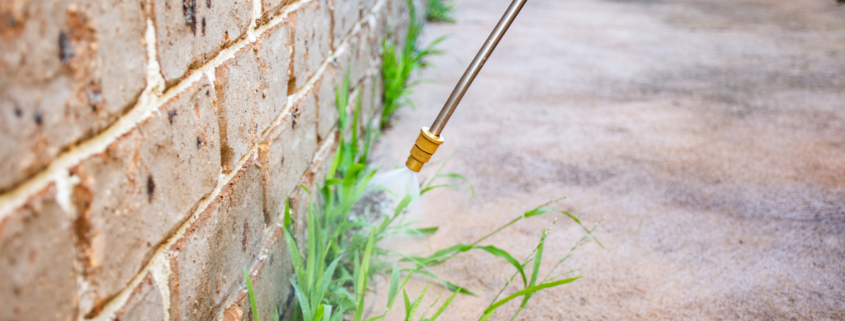







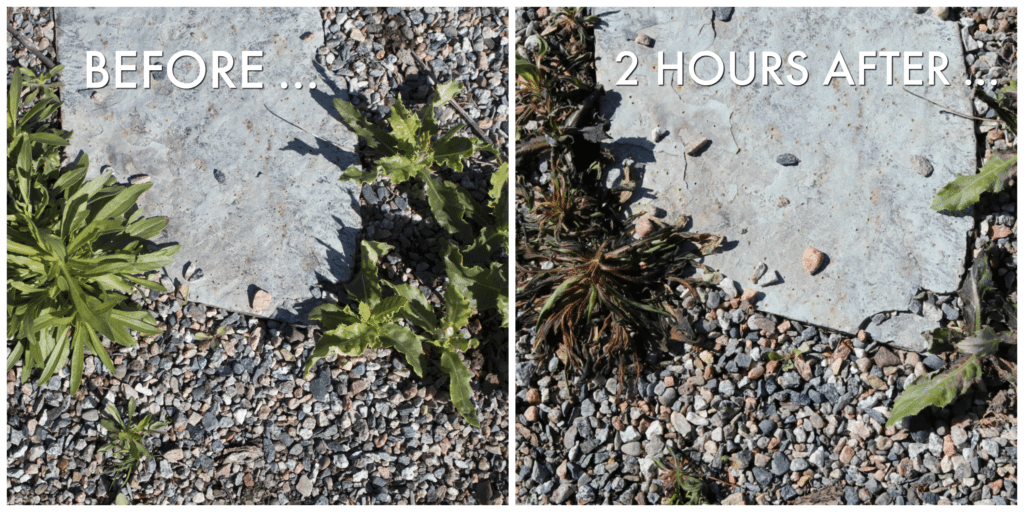










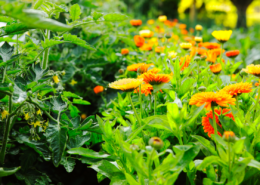
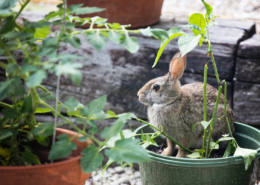
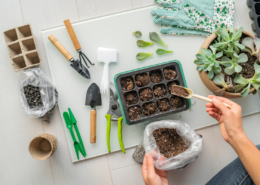
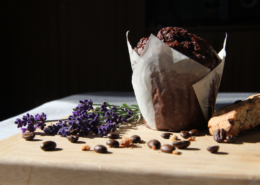





I spray my tomato plants with a mixture of water and dawn dishwashing soap it didnt kill anything around it or my plants so I dont think this will kill weeds or grass
Hi Ken! It’s the vinegar + salt that does the job on weeds. The dishwashing liquid is a surfactant, which means it breaks the surface tension of the liquid, allowing it to stick to the plant/leaves. You’re right. Soap won’t kill tomatoes! I wouldn’t suggest you perform this same test with vinegar and salt, however!
Works but doesn’t kill them dead as stated
Is there anything that will kill creeping Jenny permanently and still be able to grow veggies and grass?
I agree, roundup didn’t kill the ivy out back at all. I sprayed it on about 30x on hot days and got fed up with the work, now it just creeps over the fence again…
Ivy has a waxy coating on it.use a crop oil on to work better
Using to week of mixture makes weeks glyphosate tolerant you put 5oz per gallon in two weeks everything is dead,
Add my ingredient and say good bye to all foliage
What’s your ingredient? I tried what is said in this post, vinegar with a heap load of salt and a spritz of soap. The corners of the ivy are a bit dark now but it’s holding strong after 5 applications in full sun.
Had success with ivy, took one initial application, then subsequent spot applications.
Actually kills dandelion and blackberry briars very well.
Only if you mix it with petrol and set fire to it…
All of you! Think of your animals walking around your yard when you use this stuff! Even after it’s long dried and the plants are gone, the stuff is still on t he surface of the ground. IT NEVER GOES AWAY BUT YOUR PETS WILL!
I remember DDT. I inspected the basement of a 100 year old house in 1998 and there were no insects! At all! We found that DDT had been applied (don’t know when) and it was still at work! However, Roundup goes inert in the soil 30 minutes after application. That’s why the EPA allows it to be be sold anywhere. Fortunately, it is “idiot proof”.
Ann, we had a very close call with one of our cats and weed killer.. now using the vinegar/soap.. Im so sorry about your cat… thank you as well for your post.
I read this article by Robert Pavlis who says NaCl doesn’t break down in the soil, whereas glyphosate does. He sounds like a Monsanto hack but I’d appreciate if anyone could verify or refute any of this. I’m just a simple caveman trying to kill the weeds on my patio without ruining the planet. http://www.gardenmyths.com/homemade-weed-killer-roundup-vs-vinegar-vs-salt/
Pavlis is one of the most impressive gardeners I have ever read. He is intelligent, experienced, does his research *and* his own experiments, and explains everything in practical detail. In contrast to 90% of such bloggers. “Mosanto hack??” You have a serious perception problem.
Tried the vinegar/soap and it was a complete fail. Maybe some minor wilting but nothing was even close to being killed, nothing. A whole gallon of 5% acetic acid in my pressurized sprayer – my patio smelled like a vinegar factory! I’ll try the salt now I guess. Anyone else failing?
Yeah, this failed once before for me as well. I made a super concentrated mix in a 5 gallon bucket for my home in Colorado and added to much salt. It killed my entire lawn at that time and the yard filled up with weeds the next spring. I have to try it in NM hence why I asked about the tall Fescue issue. Be careful about the salt! I’m beginning to think resodding may be the cheaper overall solution.
Will this method work on Tall Fescue in my yard? I just moved into a new house and noticed my Bermuda Grass garden beginning to have patches of Fescue. I verified that it is indeed Tall Fescue and not Crabgrass by research and a calling a local gardener.
If you mow your lawn shorter than two inches, the fescue will be at a big disadvantage and the bermuda should overwhelm it in time. If you just want to burn it down, I would suggest using a roofing torch to cook the fescue and then reseed with a good bermuda blend.
I can’t imagine that two cups of salt sprayed on any area would be enough to keep the rain from leaching it away in a single season in a rainy region like Western Oregon/Washington. This must be a recipe for the Central Valley of California.
Actually, by far the best is something you shouldn’t use anymore . . . But I used to live out in the country where they used old motor oil from the county trucks on dirt roads. That’s the stuff . . . oil (and a little gas mixed in) will kill a spot for YEARS! Of course I personally never tried it, I just HEARD about it . . . yeah, that’s it. I just heard about it.